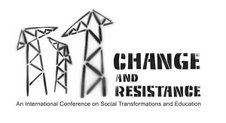Igor Nosál, Ph.D.
Masaryk University
Faculty of Social Studies
Department of Sociology
Abstract
The rhetoric and practices of the governing state bureaucracy and political elites in the field of childhood and family life are often challenged by non-governmental activists and organization, which demand for more autonomy for children, their parents and families. The paper focuses on the discursive constructions of social space for children in the “alternative” sphere of NGO during last decade in the Czech Republic. Specifically it analyses discursive events concerning domestic space (of “home” and substitute home) and the space of school. It focuses on spatial aspects of social control over children. The focus on the production of the “alternative” knowledge/power and its linguistic aspects (in the tradition of Foucault’s discourse analysis and CDA) has to explore power relations, conflict and resistance in the discursive field of post-socialist childhood. It also analyses the role of NGO as actors of change/resistance in the processes of the post-socialist social change. It also explicates the discursive practices as the tool of maintenance/change of power relations in the post-socialist era. The discursive practices are applied not only to govern the children, which are treated as the object of the state or “alternative” policy, but also to govern their parents, families and intimate life.

No comments:
Post a Comment